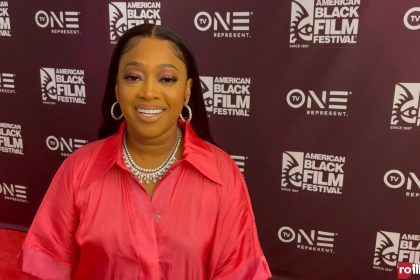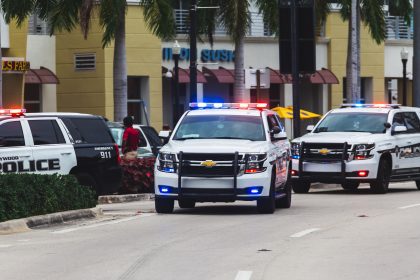When celebrities face criminal charges, their decision-making process often diverges dramatically from that of ordinary defendants. While over 90% of criminal cases in the American justice system end in plea bargains, high-profile figures frequently reject these offers, choosing instead to fight charges through full trials despite the significant risks involved. This phenomenon reflects not only the unique resources available to celebrity defendants but also the complex calculations they make when their reputation, career, and public image hang in the balance.
The decision to reject a plea deal represents a critical juncture in any criminal case, but for celebrities, this choice carries additional layers of complexity. For many, accepting a plea bargain—regardless of actual guilt—would mean publicly acknowledging wrongdoing, potentially causing irreparable damage to carefully constructed public personas and jeopardizing future earning potential worth millions. This distinctive risk-reward equation often tips the scales toward courtroom battles rather than negotiated settlements.
Wealth privilege creates alternative defense pathways
The overwhelming financial resources available to many celebrity defendants fundamentally transform their legal options. While the average defendant often accepts plea deals due to limited funds for prolonged legal battles, celebrities can afford elite legal teams capable of mounting exhaustive defenses over extended periods. This financial advantage enables strategies unavailable to most defendants, including hiring specialized experts, conducting independent investigations, and pursuing aggressive pretrial motions.
Celebrity attorney teams frequently include specialists in both criminal defense and public relations, reflecting the dual battlegrounds of courtroom and public opinion. These integrated approaches allow for coordinated strategies that protect both legal interests and public image simultaneously. For many celebrity defendants, the ability to assemble such comprehensive defense teams makes fighting charges a more viable option than accepting the certainty of a criminal record through a plea deal.
Public scrutiny transforms legal calculations
Unlike ordinary defendants whose cases proceed in relative anonymity, celebrities face intense media coverage that transforms every legal decision into headline news. This scrutiny creates a paradoxical situation where accepting a plea deal—typically designed to minimize publicity—may actually generate more damaging coverage than proceeding to trial. The narrative of fighting to clear one’s name often resonates more positively with public perception than accepting negotiated guilt, even when the latter might result in reduced penalties.
This public dimension influences legal strategy in ways that often prioritize reputation management alongside traditional defense objectives. For many celebrities, maintaining public support through a narrative of wrongful accusation becomes a strategic necessity, one that plea deals inherently undermine. Their legal teams must therefore factor in not just courtroom consequences but also how each decision will play out across social media, entertainment news, and public discussion.
High-stakes gambles yield mixed outcomes
The celebrity approach to rejecting plea deals has produced wildly divergent results throughout entertainment and sports history. For some, the decision vindicated their innocence and preserved careers that might otherwise have ended. For others, the rejection of favorable plea offers led to harsher sentences and more devastating professional consequences than necessary. These contrasting outcomes highlight the inherent unpredictability of taking cases to trial, where juries may respond either positively or negatively to celebrity status.
The outcomes of these high-profile cases often hinge on factors beyond mere evidence, including public sentiment, media narratives, and even broader cultural movements occurring simultaneously. In some instances, celebrities who rejected plea deals found themselves serving as unintentional symbols within larger social conversations about privilege, accountability, and justice, further complicating their legal situations and sometimes influencing case outcomes.
Reputation management drives defense strategy
For celebrities facing criminal charges, protecting their carefully constructed public image often takes precedence over minimizing legal consequences. While plea deals typically offer reduced penalties, they require acknowledgment of guilt—a concession many high-profile figures consider more damaging long-term than risking harsher punishment through trial. This calculation reflects the reality that for celebrities, reputation directly impacts future career opportunities and income, making the protection of public image an economic necessity rather than mere vanity.
This prioritization of reputation over risk mitigation manifests in defense strategies focused on complete exoneration rather than damage limitation. Celebrity legal teams frequently reject otherwise favorable plea offers that would resolve cases quickly because the associated admission of wrongdoing would permanently tarnish their client’s public persona. This emphasis on vindication rather than expediency represents perhaps the most significant divergence between celebrity and ordinary defense approaches.
Media platforms amplify alternative narratives
The contemporary media landscape offers celebrities unprecedented opportunities to present their own narratives outside traditional court proceedings. Through social media, friendly press outlets, and sympathetic interviews, high-profile defendants can effectively create parallel “trials” in public opinion, sometimes influencing the actual legal process. This ability to shape public perception makes fighting charges more appealing than accepting plea deals that concede wrongdoing.
The proliferation of documentaries, podcasts, and long-form interviews allows celebrities to present detailed counter-narratives that challenge prosecution accounts. These platforms enable nuanced storytelling that traditional news coverage rarely provides, potentially generating public support that indirectly influences legal proceedings. For many celebrities, these media opportunities represent a compelling reason to reject plea deals and pursue full vindication through both legal and public channels.
The celebrity approach to criminal defense illuminates broader questions about justice, privilege, and accountability in America’s legal system. While their resources and public platforms set them apart from ordinary defendants, their strategies reveal universal truths about how reputation, resources, and risk calculation shape legal decisions. As media coverage of celebrity cases continues to evolve alongside changing technology and social attitudes, the high-stakes gambles of rejecting plea deals will likely remain a defining feature of high-profile criminal defense.

















